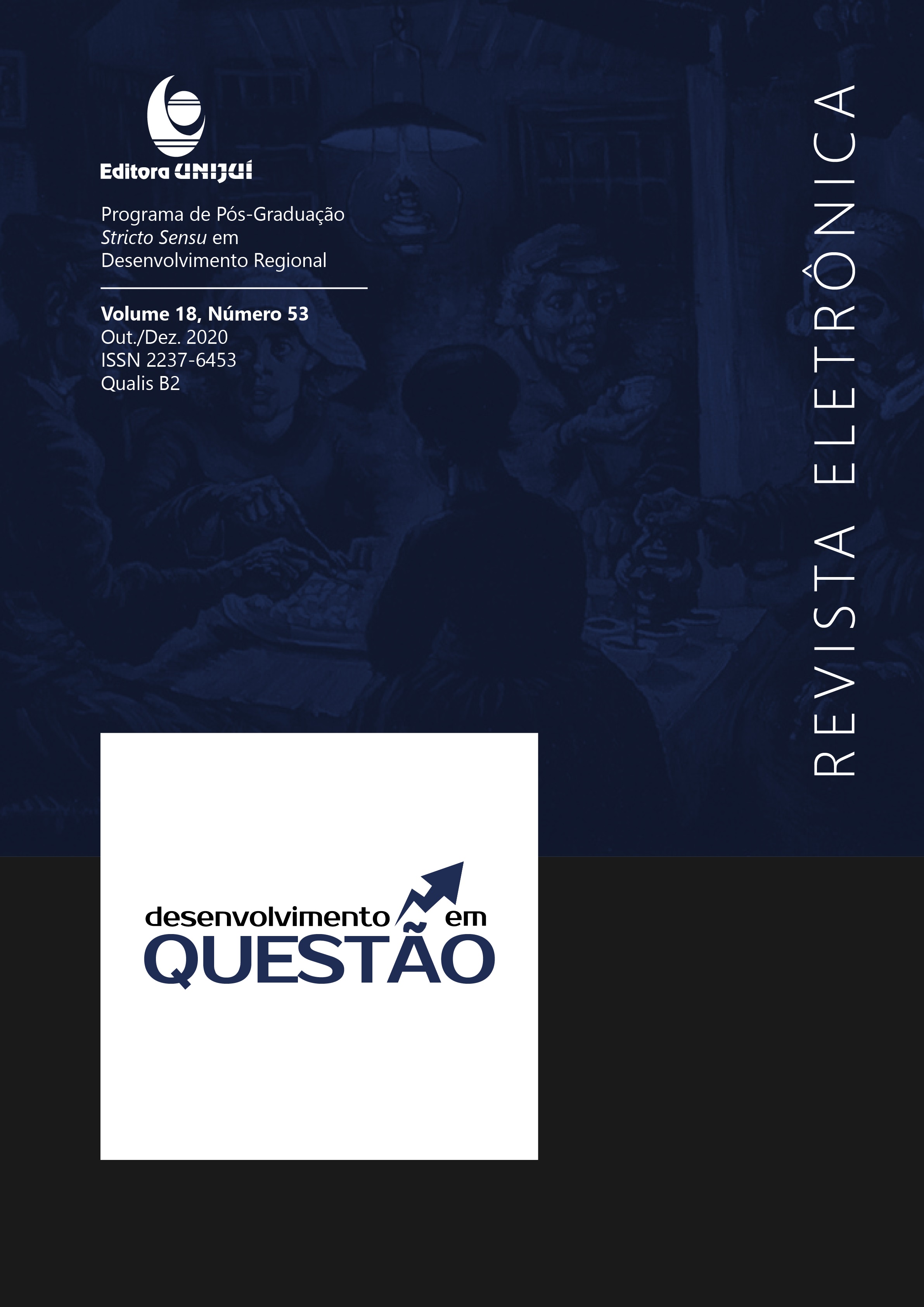FROM THE SMART CITY TO THE INNOVATIVE TERRITORY, TOWARD THE TERRITORIAL INTELLIGENCE: THEORETICAL APPROACHES AND PROSPECTIONS ABOUT THE SUBJECT
DOI:
https://doi.org/10.21527/2237-6453.2020.53.46-71Keywords:
Innovation. Smart cities. Innovative territory. Territorial Intelligence. Territorial development.Abstract
The theoretical debate about innovation and its relation with the development, generally focused in the urban space have resulted in different approaches about smart cities. These are liable of criticism, like the fact of non-replicable prerogatives, the excessive emphasis to the argument of urban development be promoted by private businesses in coalition with the government and society, or the fact of the need of inclusive and participative experiences. The approach about innovative or smart territory allows to advance theoretically, giving opportunity to social interaction for the decision-making and the appreciation and territorial appropriation of knowledge. Complementary, the theoretical approaches about territorial intelligence are presented as an innovative way of understanding the territorial, productive and social processes, by integrating actors and their expectations, vision and initiative, aiming to territorial development. It is about these theoretical questions that is proposed to reflect, by the access to recent publishing, with the purpose of instigating accessions toward the effectiveness of a territorial intelligence.
Downloads
Published
How to Cite
Issue
Section
License
By publishing in Revista Desenvolvimento em Questão, authors agree to the following terms:
All works are published under the Creative Commons Attribution 4.0 International License (CC BY 4.0), which allows:
Sharing — to copy and redistribute the material in any medium or format;
Adaptation — to remix, transform, and build upon the material for any purpose, even commercially.
These permissions are irrevocable, provided that the following terms are respected:
Attribution — authors must be properly credited, a link to the license must be provided, and any changes made must be indicated.
No additional restrictions — no legal or technological measures may be applied that legally restrict others from doing anything the license permits.
Notices:
The license does not apply to elements that are in the public domain or covered by legal exceptions.
The license does not grant all necessary rights for specific uses (e.g., image rights, privacy, or moral rights).
The journal is not responsible for the opinions expressed in the articles, which are the sole responsibility of the authors. The Editor, with the support of the Editorial Board, reserves the right to suggest or request modifications when necessary.
Only original scientific articles presenting research results of interest that have not been previously published or simultaneously submitted to another journal with the same purpose will be accepted.
Mentions of trademarks or specific products are intended solely for identification purposes and do not imply any promotional relationship by the authors or the journal.
License Agreement (for articles published from 2025 onward): Authors retain the copyright to their article and grant Revista Desenvolvimento em Questão the right of first publication.











